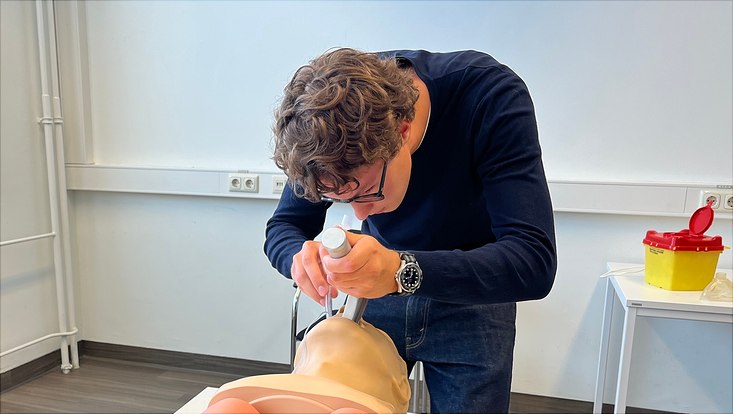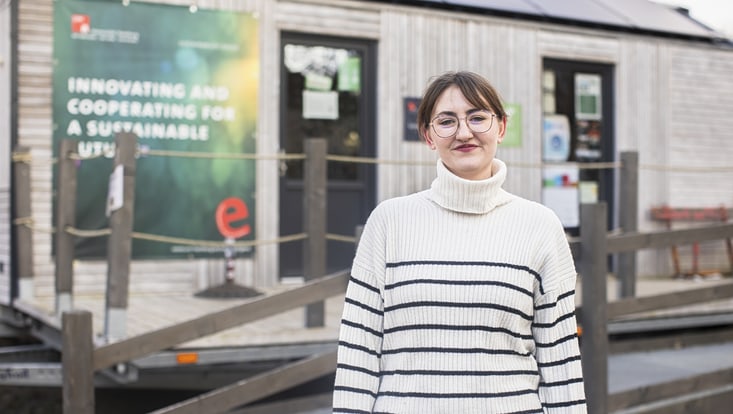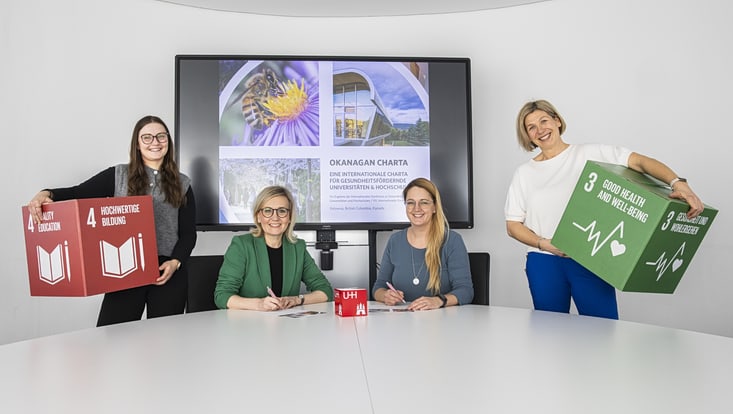Student research groupUsing Science to Modernize the Study of Medicine
27 September 2024, by Newsroom editorial team/ME-Learn

Photo: Private
Studying medicine requires students to study efficiently, to store a broad range of content long-term for their later work as a doctor. The student research group ME-Learn at Universität Hamburg—University of Excellence would like to help shape this learning process more sustainably with the aid of science-based learning methods.
For medical students, it’s a daily experience, committing anatomical structures, physiological processes, and biochemical formulas to memory in a very short time. The knowledge must not only be available for the exam, but also years later when treating patients. But how can this work best? That is what Ben Lücking, Michail Mordvintsev, Henry Risch, and other students in the student research group Medical Education-Learn (ME-Learn) want to find out.
“At some point during my medical studies, I asked myself how I could make my own learning more efficient and remember what I had learned in the long term,” says Mikhail Mordvintsev, one of the ME-Learn founders and a medical student at the University Medical Center Hamburg-Eppendorf (UKE). The research group, funded by the Excellence Strategy of the federal and state governments for the past six months, sets students to look at the complex process of learning.
Store knowledge for later medical practice
In particular, they focus on internalizing what has been learned for later medical work, where life and death decisions sometimes have to be made in seconds. In these situations, it is essential to have the best possible access to practical and theoretical medical knowledge.
“Medical students also employ intuitive learning methods such as highlighting texts or reading textbooks over and over again, but these are not very promising in terms of sustainable learning success,” reports Henry Risch. Academia tends to rely on learning methods such as active recall, also known as retrieval practice, i.e. the active reproduction of what has been learned, for example through tests, or the temporal division of learning units over longer periods of time, so-called spacing.
Implementation in medical studies at the UKE
The ME-Learn team has compiled and evaluated these various methods, which are intended to guarantee long-term learning success, in systematic literature research and interviews with experts, and applied them to the study of medicine. Based on this knowledge, the members have also developed lectures and workshops to share their findings with medical students throughout Germany. The next step is to implement the methods at the University Medical Center Hamburg-Eppendorf.
In cooperation with Prof. Dr. Parisa Moll-Khosrawi, head of the working group and teaching coordinator for anaesthesiology and emergency medicine at the UKE, the teaching of emergency medicine is being redesigned accordingly. The science-based learning methods such as active recall and spacing will then be evaluated in several ongoing studies.
“We want to find out to what extent evidence-based learning methods actually add value to university teaching and students’ learning success, and whether it makes sense to use them more widely in a university context,” says Ben Lücking. The research group wants to contribute to integrating effects observed in the laboratory into teaching practice—and thus further improve medical studies not only at the University of Hamburg.
The funding program
The student research group program at Universität Hamburg—University of Excellence enables student research groups to assume responsibility for their own academic project. The program calls for applications twice annually and offers a total of €10,000 per project.


